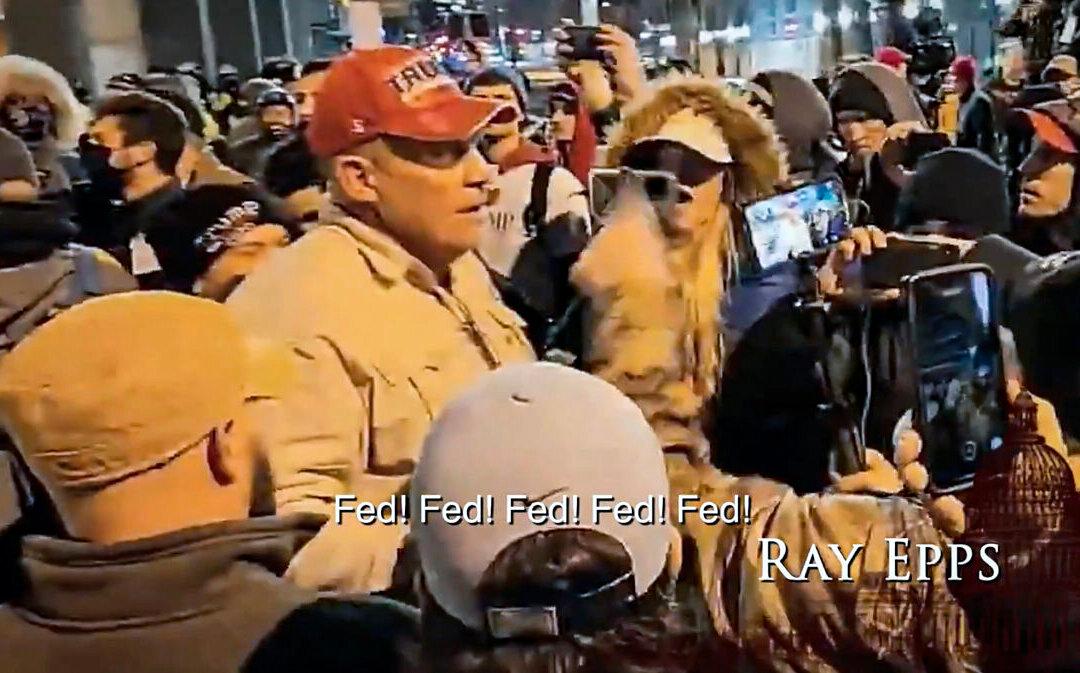Top federal law enforcement officials have declined to answer numerous questions about Ray Epps, the Arizona resident captured on video encouraging Jan. 6, 2021, protesters to breach Capitol Hill.
Controversy has surrounded Epps in recent months due to questions about his possible connection to law enforcement. Despite video evidence of him making repeated calls for action, Epps hasn’t been charged in relation to the Jan. 6 incident, and his photo has been removed from the government’s list of most-wanted people from the event.




